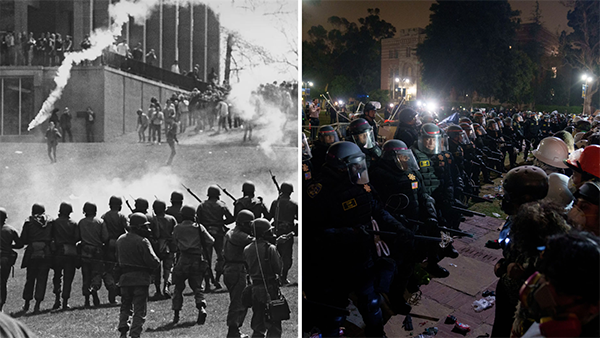The statement discusses the evolution of police forces in the United States since the Kent State Massacre of 1970, emphasizing an increase in militarization and the use of advanced technology. It suggests that these changes have enabled police to harm citizens with greater impunity, especially in the context of mass surveillance. The tone is critical and the intent is to provoke thought and discussion about the implications of police militarization on civil liberties.
- The statement aims to highlight concerns about police practices and their impact on society, which is a significant public issue. It does so in a manner that could stimulate informed discussion. [+1]Principle 1:I will strive to do no harm with my words and actions.
- While the statement is critical, it respects the dignity of individuals by focusing on systemic issues rather than targeting specific individuals. [+1]Principle 2:I will respect the privacy and dignity of others and will not engage in cyberbullying, harassment, or hate speech.
- The statement lacks a balanced perspective and does not provide a comprehensive view of the reasons behind police militarization, which could detract from fostering a full understanding. [-1]Principle 3:I will use my words and actions to promote understanding, empathy, and compassion.
- The critical nature of the statement may polarize rather than promote constructive dialogue, especially without offering potential solutions or engaging with opposing viewpoints. [-1]Principle 4:I will engage in constructive criticism and dialogue with those in disagreement and will not engage in personal attacks or ad hominem arguments.
- The statement uses its platform to raise awareness about a public concern, which could contribute to societal betterment if it leads to more informed discussions on police reform. [+1]Principle 6:I will use my influence for the betterment of society.
